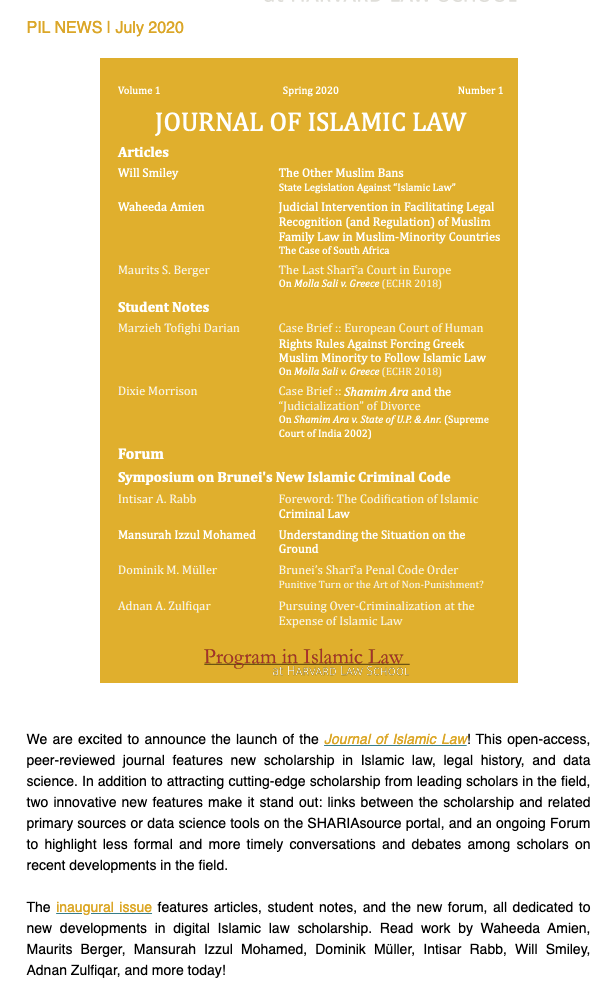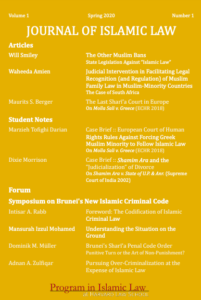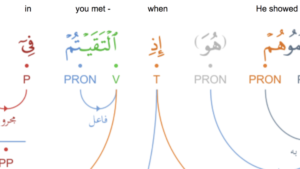Posted on July 26, 2020

 We are excited to announce the launch of the Journal of Islamic Law! This open-access, peer-reviewed journal features new scholarship in Islamic law, legal history, and data science. In addition to attracting cutting-edge scholarship from leading scholars in the field, two innovative new features make it stand out: links between the scholarship and related primary sources or data science tools on the SHARIAsource portal, and an ongoing Forum to highlight less formal and more timely conversations and debates among scholars on recent developments in the field.
We are excited to announce the launch of the Journal of Islamic Law! This open-access, peer-reviewed journal features new scholarship in Islamic law, legal history, and data science. In addition to attracting cutting-edge scholarship from leading scholars in the field, two innovative new features make it stand out: links between the scholarship and related primary sources or data science tools on the SHARIAsource portal, and an ongoing Forum to highlight less formal and more timely conversations and debates among scholars on recent developments in the field.

CONTENT: Saudi Arabia’s Ministry of Hajj and Umrah on Hajj 1441H/2020AD
As part of its growing archive of contemporary fatwās and related materials SHARIAsource, features the documents giving voice to the recent decision in the Kingdom of Saudi Arabia on Ḥajj, the pilgrimage slated to take place next month. The Kingdom made the decision to impose strict limitations on this year’s Hajj in light of the continued risks of the COVID-19 pandemic. This decision falls into a larger spate of over 100 pandemic-related statements and fatwās issued over the past month collected in our Mapping Covid-19 Fatwās Project led by Prof. Adnan Zulfiqar of Rutgers Law School.

CONTEXT: NEW! Islam and Data Science Roundup
We recently launched a new Islam and Data Science Roundup. The weekly collection points to news and scholarship in fields at the intersection of Islamic law, Islamic history, and data science. We explore new developments in digital and AI tools as well as research about them or scholarship deploying them in the field. Recent highlights include Junaid Qadir and Amana Raquib award from Facebook’s Ethics in AI Research Initiative for their project on Islamic legal ethics and AI, and Professor Mairaj Syed’s two part series on natural language processing, machine learning, and Islamic law.
We recently launched a new Islam and Data Science Roundup. The weekly collection points to news and scholarship in fields at the intersection of Islamic law, Islamic history, and data science. We explore new developments in digital and AI tools as well as research about them or scholarship deploying them in the field. Recent highlights include Junaid Qadir and Amana Raquib award from Facebook’s Ethics in AI Research Initiative for their project on Islamic legal ethics and AI, and Professor Mairaj Syed’s two part series on natural language processing, machine learning, and Islamic law.
See the full newsletter.

